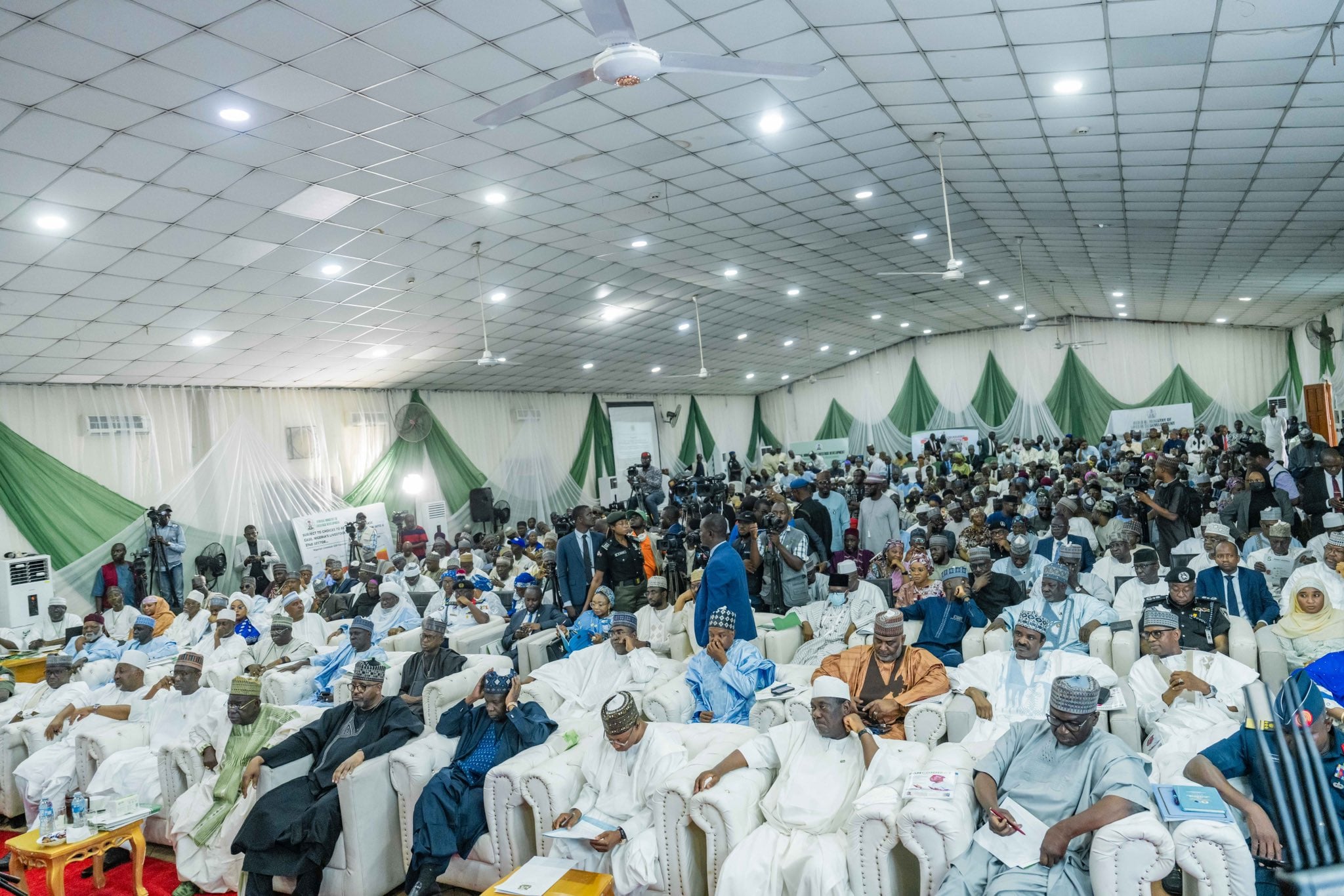The National Universities Commission (NUC) on Thursday presented provisional licenses to 20 newly approved private universities in Nigeria.
The Minister of Education, Malam Adamu Adamu, at the presentation of the licenses to the universities at the NUC’s headquarters in Abuja, said the approval brought the number of private universities in Nigeria to 99 and a total of 197 universities.
The universities are – James Hope University, Lagos; Maryam Abacha American University of Nigeria, Kano; Capital City University, Kano; Ahman Pategi University, Pategi, Kwara State; and University of Offa, Kwara State.
Others are – Topfaith University, Mkpatak, Akwa Ibom State; Thomas Adewumi University, Oko-Irese, Kwara State; Maranathan University, Mgbidi, Imo State; Ave Maria University, Piyanko, Nasarawa State; and Al-Istiqama University, Sumaila, Kano State.
Also granted provisional approval are – Mudiame University, Irrua, Edo State; Havilla University, Nde-Ikom, Cross River State; Claretian University of Nigeria, Nekede, Imo State; NOK University, Kachia, Kaduna State; and Karl-Kumm University, Vom, Plateau State.
Mewar University, Masaka, Nasarawa State; Edusoko University, Bida, Niger State; Philomath University, Kuje, Abuja; Khadija University, Majia, Jigawa State; and ANAN University, Kwall, Plateau State.
The Federal Executive Council (FEC), presided over by President Muhammadu Buhari, in February approved the establishment of 20 private universities in the country.
Adamu, who was represented by the Minister of State for Education, Chukwuemeka Nwajiuba, said the provisional approval given to the universities to operate as intended to create room for effective mentoring and qualitative growth within the first three years of operation.
He said during the monitoring period, the new universities would be affiliated to older generation universities for academic and administrative mentoring to be moderated by NUC.
“This is part of NUC‘s initiative for early-warning signals to detect compromises in quality for the application of corrective and remedial measures to redress such situations. Substantive licences will be issued to well-managed institutions after the three years of probation following their satisfactory performance and growth, within guidelines stipulated by the Commission,” Nwajiuba said.
The minister underscored the need to increase the number of universities in the country, taking into consideration the country’s 200 million population.
He noted that private Universities had contributed to the opening up of admission space for the swelling population of candidates seeking university education in the country.
Adamu observed that the argument in some quarters that private universities had become too many in Nigeria was not plausible, noting that comparative figures of universities in other countries show that Nigeria needs more universities.
“Government is also well aware that countries that are consistently well-ranked in Human Development indices have, in recognition of the important role of Universities in human capital development, maintained a respectable number of Universities relative to their population,” Nwajiuba said.
“In relation to Nigeria’s population of over 200 million, the current 193 Universities is quite low when compared to those of other economies’ such as, Brazil (209 million) 441 Universities, Mexico (126million) 375 Universities, Russia (1445 million) 741 Universities.
“In 2019, the Joint Admissions and Matriculations Board (JAMB) announced that out of over 1.8 million candidates registered for the UTME, only 612,000 were admitted in Nigerian Universities representing 34%. This shows gross inadequacy in terms of access.”
He assured that government would continue to encourage NUC to keep strengthening its quality assurance mechanism so that as the number increases, quality and relevance to national needs are not compromised.
The executive secretary of NUC, Abubakar Rasheed, said the Nigerian University system has experienced a rapid expansion over the last two decades from less than 40 in 1996 to 197 presently.
He noted that in processing the 20 new universities for licensing, the commission took adequate care to ensure the currency and relevance of their proposed academic programmes in addressing the challenges of contemporary society.
Rasheed disclosed that the NUC has also developed a code of governance for private universities, which is expected to address the identified governance challenges bedeviling many private universities.
He warned the proprietors against breach of the conditions for the approval.
“Any unwholesome practice or operation outside the provisions of NUC guidelines is unacceptable and will attract appropriate sanctions,” Nwajiuba said.
“Proprietors should note that, beyond receiving the licences, NUC will embark on a resource verification exercise to certify that the minimum human and material resources, required for the commencement of academic activities in the take-off programmes, have been provided.”
The founder and Chairman of Zenith Bank Plc, Mr. Jim Ovia, who spoke on behalf of other beneficiaries, appreciated the commission for the approval and pledged to keep to the mandate for the establishment of the universities.
Ovia, who is also the Chairman, Board of Trustees, of newly approved James Hope University, Lagos announced that 20 per cent of his yearly dividend at Zenith Bank Plc would be used for the development of the university.
[ad unit=2]






